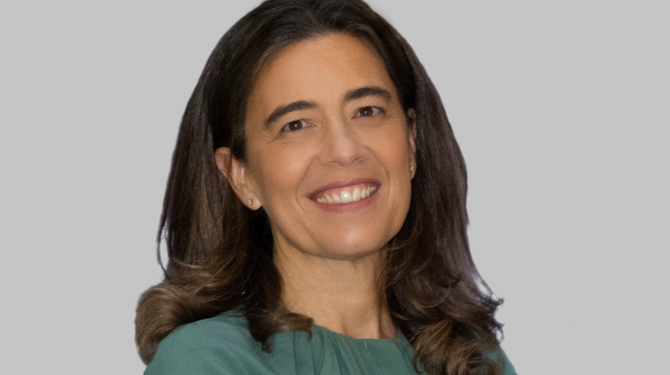Sign up for our free daily newsletter
YOUR PRIVACY - PLEASE READ CAREFULLY DATA PROTECTION STATEMENT
Below we explain how we will communicate with you. We set out how we use your data in our Privacy Policy.
Global City Media, and its associated brands will use the lawful basis of legitimate interests to use
the
contact details you have supplied to contact you regarding our publications, events, training,
reader
research, and other relevant information. We will always give you the option to opt out of our
marketing.
By clicking submit, you confirm that you understand and accept the Terms & Conditions and Privacy Policy
These are highly unpredictable times. Even before the Covid-19 pandemic we were adjusting to living in an increasingly volatile, uncertain and ambiguous world. The pandemic has taken this to a new dimension.
Our future as lawyers is inextricably linked with the future of everything else, including the opportunities that can come with harnessing technological change for good. How to harness this change for progress among all walks of business and social life: in our cultures; the diversity of our workplaces and among our leaders?
These issues have fascinated me throughout my career but have come into particularly sharp focus now the world is undergoing such rapid technological change. It is this thinking that led me to write Sustainable Success, an exploration of technology, culture and leadership – not just within law firms but the wider knowledge sector and society. Painting a vision of the future, the book brings together views from experts across Europe to project an optimistic view of a future where machines will drive business efficiency.
Technology will force us to fix things, not replace us
Lawyers are traditionally highly resistant to change and the prevailing view among the most successful is that “if it ain’t broke, don’t fix it”. However it has become clear that technology – especially the advent of AI in law – will force us to fix things. If we do not, the system will eventually break.
There will be huge challenges to overcome, but there are also opportunities. I see a future where humans will continue to thrive, despite all the dystopian predictions of a world where people are replaced by machines. Our focus must be on how AI can augment the skills of knowledge workers in new ways. For us as lawyers, the question is whether our work can be done better and in new ways by machines. The question for law firms is how, in the future, the most competitive businesses will solve the problems to which they are currently the best answer?
So we need to ensure that in making AI effective it serves us and not the machine. As one contributor to the book said, “we are in the wild west” without any effective regulation, because at present this does not exist. We must all ensure AI is regulated carefully, on a global scale, so that it serves the interests of humanity and is used for social good – delivering trust, transparency, fairness and non-bias.
For the many, not the few
To understand and harness the power of technology, lawyers need to learn to collaborate on equal terms with people from a wide variety of backgrounds and disciplines. Lawyers must stop seeing themselves as some sort of superhero and realise that technology can arm them with abilities they do not currently possess. It will replace some repetitive tasks, but that will free us to do more interesting and more strategic work.
We already know that as we embrace automation in imaginative ways, the upside has to be equal for us and our clients. The advantages it will bring for clients will lead to demands for transparent pricing and lower costs. This will undoubtedly challenge us and may sweep away the old billable hour model. We should be prepared for this uncertain future.
Leadership and culture
In an age of hyper-uncertainty, the old style of visionary leader is outdated and we are instead seeing the emergence of “balance-sheet builders”, focused on nurturing collaboration. This will call for an entirely different kind of leadership – one that is more about asking questions than providing answers and more about trust than control, but coupled with the ability to create a sense of direction and optimism about the future.
Purpose and culture are the building blocks of resilience, the constants that allow you to prepare for whatever the future holds. At Vieira de Almeida, we embrace technology but our aim continues to be to build a trust-based, collaborative culture that puts humans – whether our clients, people, suppliers or community – at the core. As we emerge from the pandemic into a world in which tech-enabled remote working features far more than in the past, culture will be as important as ever.
I remain optimistic about a future world where machines, especially AI, will drive efficiency in business. But that progress must not come at the expense of the ability of humans to manage it. Rather, human endeavour and skill should be at the heart of the technological revolution so that progress serves humanity. We all have a role to play in ensuring this happens.
Paula Gomes Freire is group executive partner of Portuguese law firm Vieira de Almeida.
Sustainable Success can be downloaded here.
Email your news and story ideas to: [email protected]






